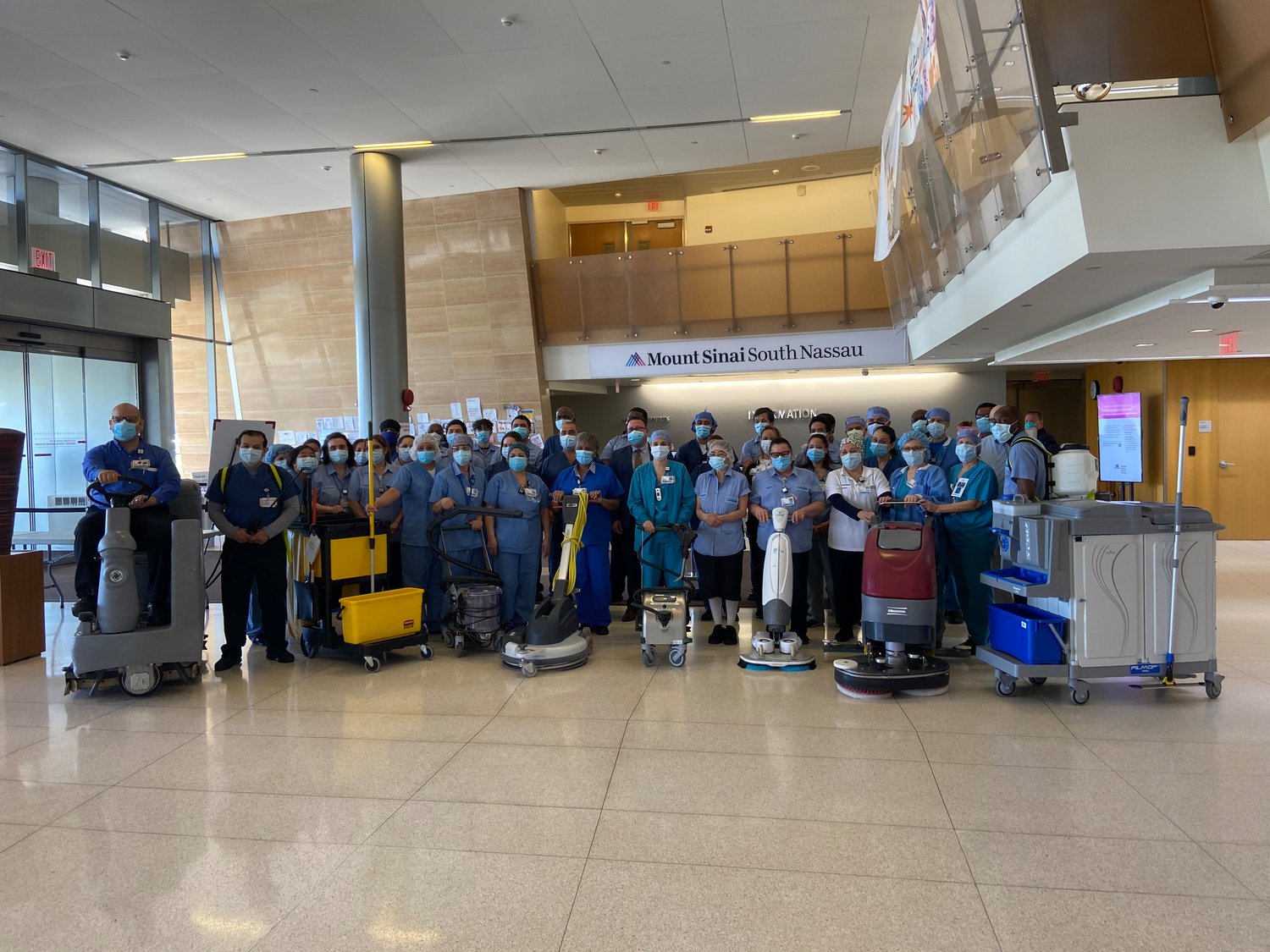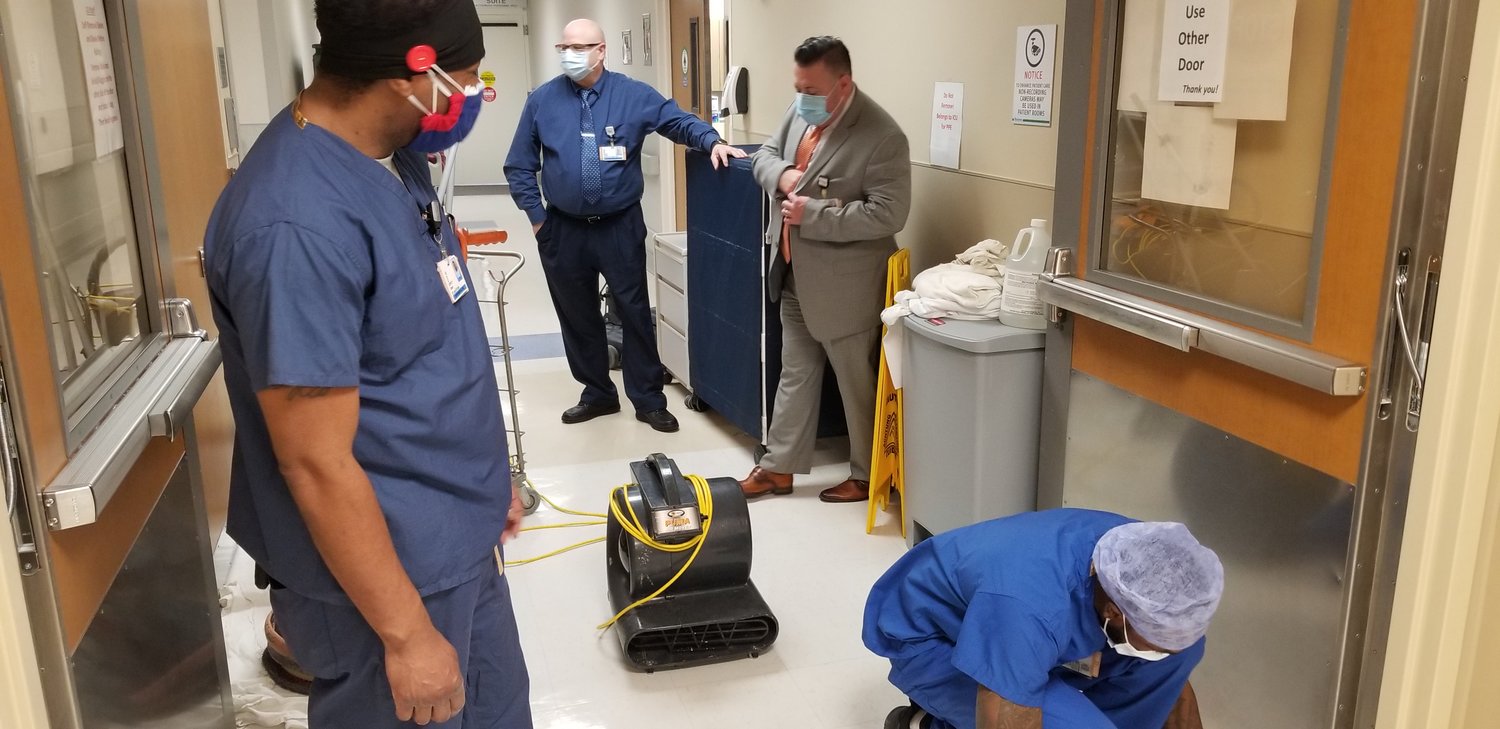MSSN officials: Hospital’s safe for non-Covid patients
With the coronavirus causing many South Shore residents to be afraid to visit hospitals to address other medical issues, Mount Sinai South Nassau hospital in Oceanside has launched a campaign informing the community that it’s safe to come to the facility. Amid a 50 percent drop in patients visiting the hospital's emergency department, physicians and administrators are urging residents not to risk their health out of fear.
“We don't want people to put their health on hold in fear of Covid,” said Joe Calderone, MSSN's senior vice president of corporate communications and development, “and we've taken the steps needed to ensure their safety when they come here. Our overall message is simply that it is safe to come here.”
As the spike in coronavirus patients has lessened, MSSN officials have launched a “Don't Put Your Health on Hold” initiative in the hope to “return to normal.” In addition to a deep cleaning of the facilities where coronavirus patients were treated, the staff has taken many precautions to ensure the hospital is safe for the public.
Chief Medical Officer Dr. Adhi Sharma said it could be dangerous for residents not to visit the hospital after experiencing a medical episode. He said if a person has chest pains that lead to a heart attack, doctors are usually able to open a heart vessel and treat the patient that same day, increasing the chances of a full recovery. If they decide to stay home out of fear, the heart muscle could weaken, causing long-term health issues stemming from a blockage in the vessel. He added that it could lead to a person becoming unable to enjoy hobbies like walking or jogging, or worse.
“People are delaying care, and while it's not necessarily always fatal, it's going to impact lives,” Sharma said. “It can be very challenging for patients to feel safe, but we want them to know that we have taken every measure.”
MSSN is still awaiting approval from the state's Department of Health to return to providing elective surgeries, but Sharma noted that physicians perform eight to 12 procedures per day to treat patients. They include gall stone attacks, spinal stenosis, appendicitis or any other ailment that cannot wait for treatment. On May 6, hospital administrators opened a drive-through coronavirus testing site in the Washington Avenue parking lot. Patients who are undergoing any procedure in the hospital must be tested at the tent within two days before their operation.
Calderone said the hospital had about 100 Covid-positive or Covid-suspected patients as of May 7, which continued the trend of decreasing cases. At one point, 80 percent of the patients in the hospital had tested positive for the coronavirus, but the number has consistently remained at roughly 40 percent in the last few weeks. While many units were transformed into facilities to treat Covid-19 patients last month, Calderone noted, the decrease in cases has helped the hospital staff to slowly empty the units and sanitize them before enabling non-Covid patients to return to the areas. Sterilizing agents have also been used in the emergency department and intensive care unit.
Over the past two weeks, the two large triage tents outside the facility that hospital staff erected in late March to treat patients during the surge have not been used. Calderone said administrators would likely keep them up into the summer and possibly through the fall in the event of another surge. Sharma said that while a second strain of the virus is likely, it's up to the community to keep its impact minimal.
“If people are careful and wear their masks when they're in public, wash their hands and really minimize any unnecessary meetings or gatherings, it's that element that is going to help reduce that second surge,” he said. “It's individual responsibility and common sense. Those can help us avoid a large second surge.”
In addition to hospital staff wearing personal protective equipment, administrators have dedicated spaces in the hospital for non-Covid patients, and a no-visitors policy remains in effect. If any patients exhibit shortness of breath, a fever or any other symptom consistent with the virus, they are not placed in the non-Covid area, even if they are coming in for an ailment unrelated to the virus, such as a broken bone.
Though the coronavirus has stressed frontline workers, Calderone said, there have been silver linings, such as the outpouring of support from the community in the form of food and other donations, and the strengthening of the staff by dealing with hundreds of critical care patients. Calderone added that the staff was thankful for everyone in the community who supported them, and that he also wants South Shore residents to know that it is safe to come to the hospital for non-coronavirus related issues.
“We know the public has been hearing nothing but Covid news for the last two months,” he said, “but we've taken all necessary steps to ensure patient safety, and if you're feeling a symptom of a potentially serious issue, it's going to be much riskier to stay at home and ignore those symptoms than if you came here to the Emergency Department.”

 44.0°,
Mostly Cloudy
44.0°,
Mostly Cloudy 







